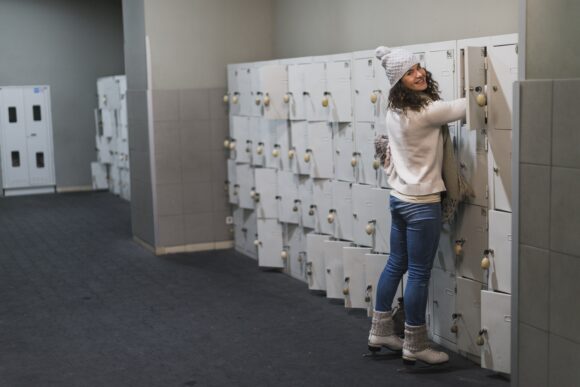In modern workplaces, we often talk about flexible hours, wellness initiatives and hybrid working. But there’s one simple element that can have a surprisingly big impact on staff wellbeing: staff lockers. Having a secure, personal space at work isn’t just about storage, it’s about creating trust, comfort and a sense of belonging. Let’s explore the psychology behind staff lockers and why they matter more than you might think.
Why Personal Space Matters in the Workplace
Psychologists have long highlighted the importance of personal space in reducing stress and improving focus. Employees with access to personal space generally report significantly lower stress levels compared to those without.
In busy environments such as offices, warehouses, hospitals or schools, staff lockers provide that defined area that belongs to each individual. This sense of territory helps staff feel respected, valued and more in control of their environment.

The Link Between Staff Lockers and Wellbeing
- Organisation and focus – Clutter has been shown to compete for your attention, leading to lower productivity and increased stress. Lockers help keep shared spaces tidy and calm, supporting better focus and peace of mind.
- Wellbeing and comfort – When employees know their belongings are safely stored, they are more likely to bring items that support their wellbeing, whether that’s lunch, gym gear or personal comforts.
- Mental boundaries – Locking away belongings at the start of a shift and collecting them at the end creates a subtle but powerful boundary between “work mode” and “home mode,” helping staff switch off more easily.
Boosting Workplace Culture with Staff Lockers
Beyond practical storage, staff lockers can also play a vital role in shaping workplace culture. When every team member has access to the same secure space, it creates a sense of fairness and equality across the business. This small detail helps ensure that staff at all levels feel valued equally.
Lockers also encourage responsibility. With a personal space to keep their belongings, employees are less likely to misplace items or leave them lying around, which contributes to a tidier and more efficient workplace overall.
There’s also an image factor to consider. A workplace fitted with modern, well-designed staff lockers sends a strong message to employees and visitors alike: this is a business that takes organisation, security and staff wellbeing seriously. By investing in lockers, employers can demonstrate that they care about more than just productivity, they care about people too.
Choosing the Right Staff Lockers
When selecting staff lockers, it’s worth thinking about more than just storage capacity:
- Size and capacity – Consider what staff will be storing day to day.
- Materials and durability – Metal lockers suit industrial or office settings, while plastic options are ideal for damp environments.
- Locking systems – Choose from keys, combination locks or modern digital options.
- Customisation – Colours and finishes can make lockers blend into the workplace or reinforce your brand identity.
At Locker Shop UK, we supply a wide range of staff lockers, from robust metal units to plastic and compact designs. All of these are tailored for offices, schools, healthcare facilities, hospitality and beyond. Browse our Staff Lockers to find the perfect balance of security, durability and modern design.
Final Thoughts
Staff lockers might seem like a small investment, but their impact on employee wellbeing and workplace culture is significant. From lowering stress and improving organisation to creating a stronger sense of fairness and belonging, lockers are much more than just storage, they’re an essential part of a positive working environment.
At Locker Shop UK, we offer a range of staff lockers designed to make the most of your space and budget. Contact us today on 01244 940906 or email orders@lockershopuk.co.uk to find the perfect solution.
Previous releases
The Psychology of Staff Lockers: Why Personal Space Matters at Work
Mitigating the challenges and concerns surrounding staff lockers
Tags: Lockers, staff lockers
